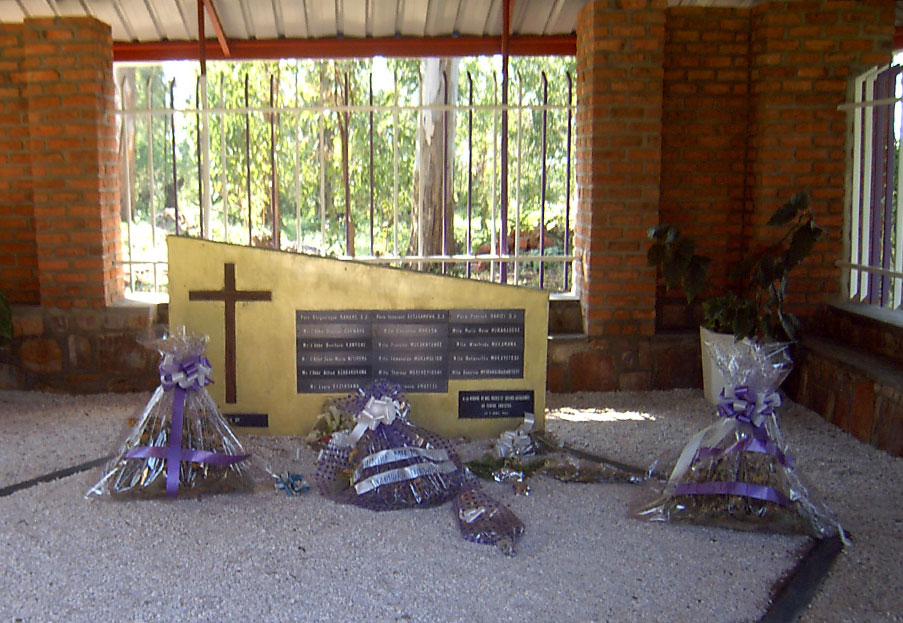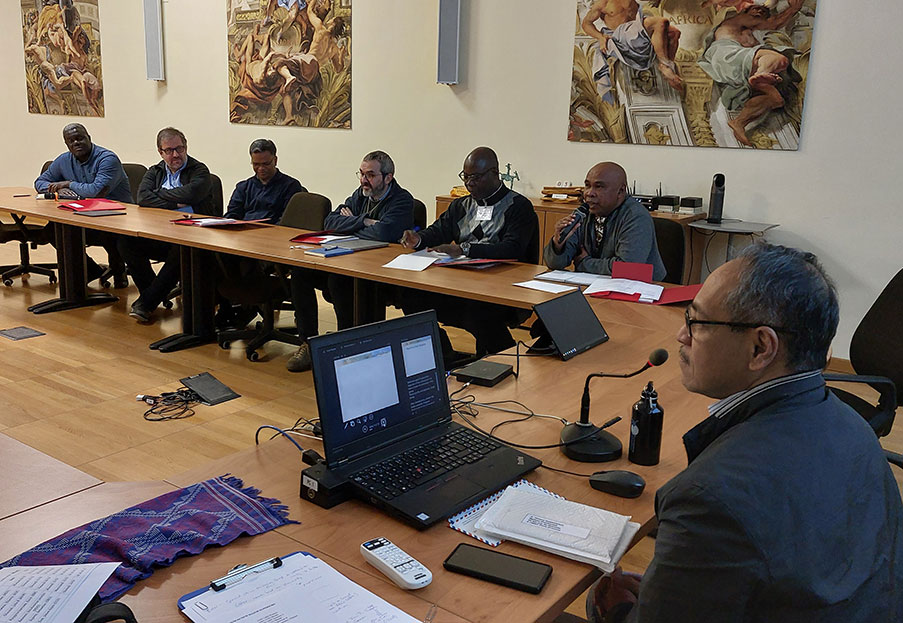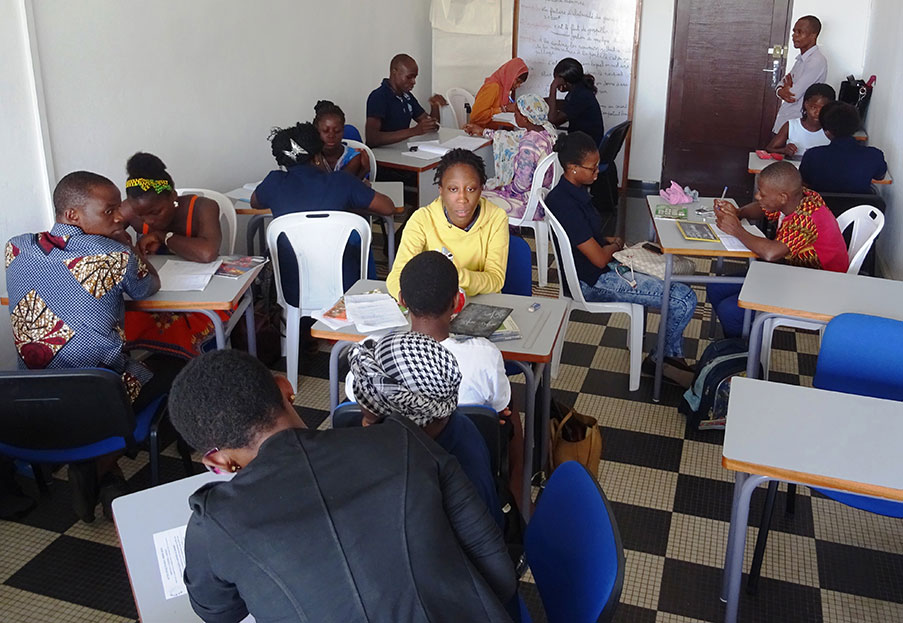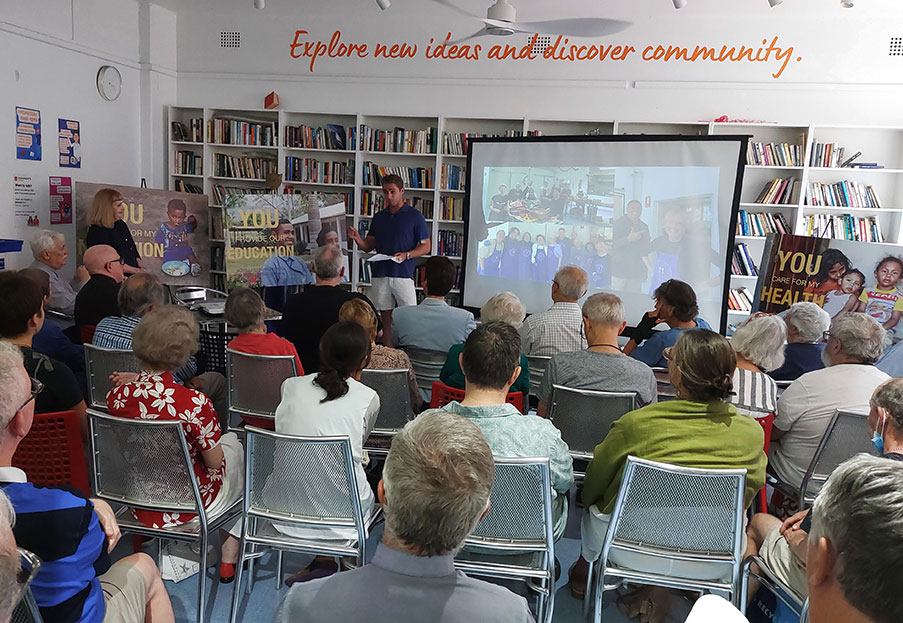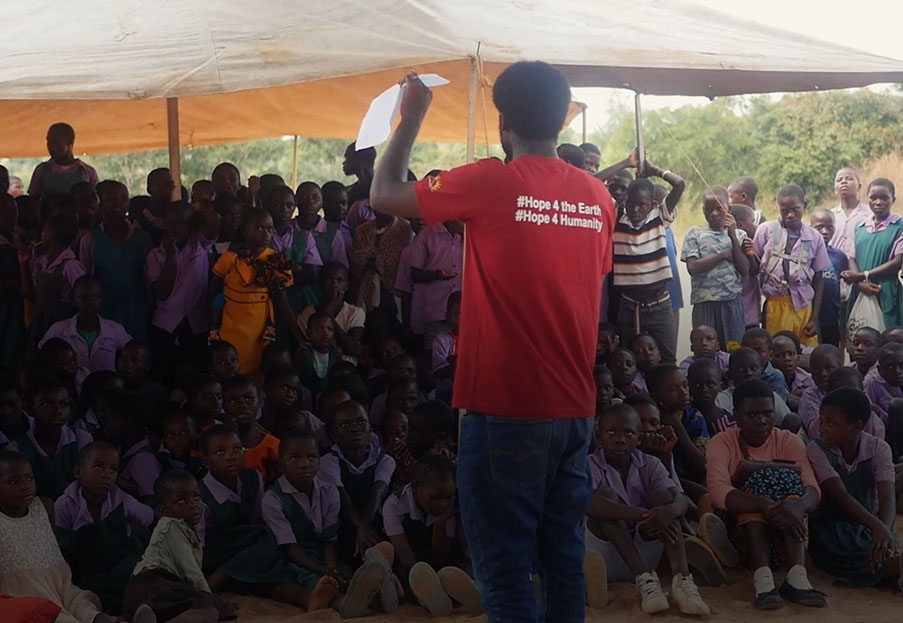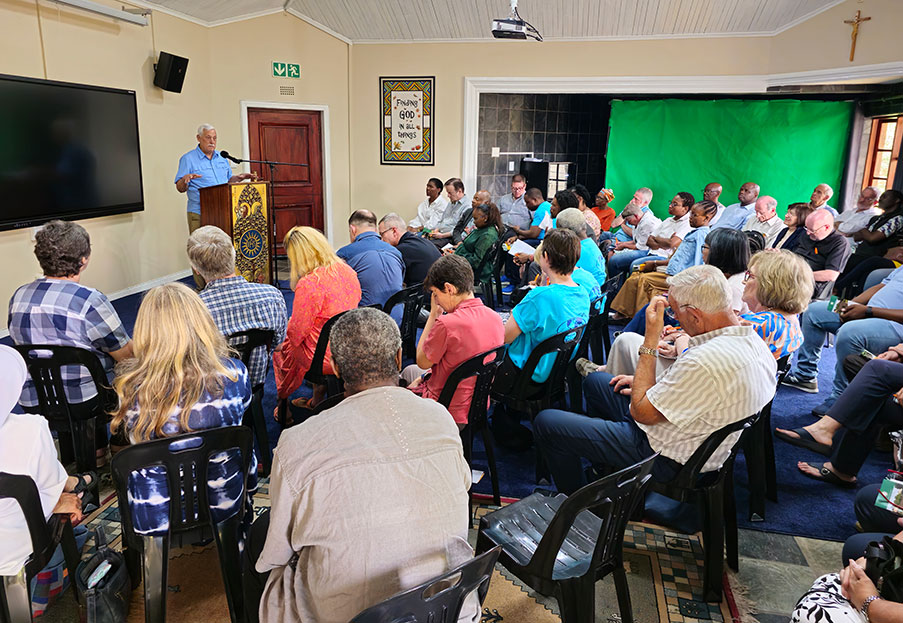Accompanying youth in a rollercoaster
Caleb Mwamisi - Communication and Research
Officer - AJAN - Nairobi, Kenya
[From “Jesuits 2022 - The Society of Jesus in the world”]
An initiative to educate and empower African youth so they can live purposefully.
It is a sunny Friday afternoon in Eastern
Nairobi in early December 2020, when a car ferrying a team of trainers from the
African Jesuit AIDS Network (AJAN) snakes its way through a muddy path to a
primary school. Gun shots will often rend the air in the area as police pursue
criminals who retreat into the densely populated slums after their unlawful
activities. As the principal of the school receives us, she summarizes the task
at hand but underscores the challenge that her students face daily: recruitment
into Gaza. Gaza has nothing to do with Palestine but is rather a criminal gang
known for violent robbery, rapes, and other mayhem in Nairobi and a few other
Kenyan towns.
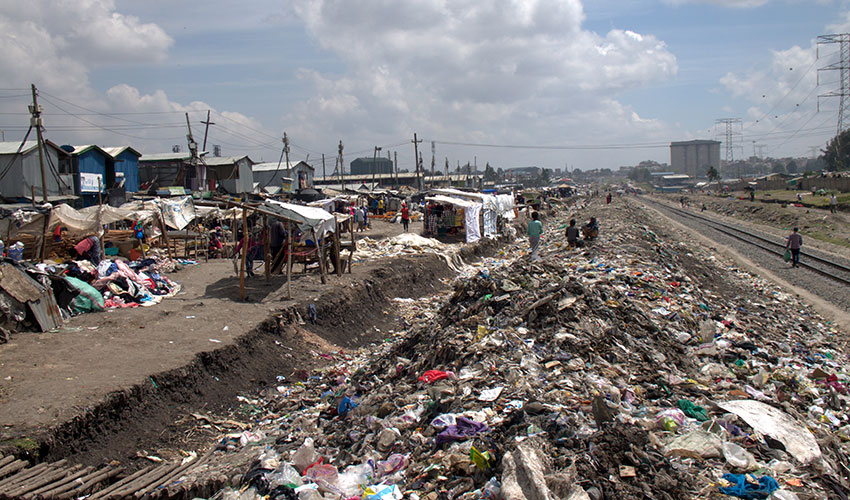
As the AJAN network undertakes to educate and empower African youth to remain free of HIV/AIDS and to make use of the gift of life to live purposefully, it is inspired by the gospel of John: “I have come that they may have life, and have it to the full” (John 10:10). One of its programmes, AJAN HIV and AIDS Prevention Programme for Youth, “AHAPPY,” is aimed at reducing vulnerability and contraction of HIV by youth between the ages 10 and 24. Through it, AJAN works to promote the holistic development and achievement of a young person’s fullest potential through cura personalis.
After prayer and introductions, trainer Steve
Arodi begins to engage students. “How many want to share their life dreams with
us?” Many hands shoot up with students expressing their admiration and desire
to pursue such careers as aviation, engineering, and health, among others.
“What can stand in the way of your dreams?” he probes further. “Ball,” says a
boy, and the rest of students break out in laughter as the word used in slang
refers to pregnancy. Many other threats to the realization of dreams are
mentioned, as are HIV and AIDS, leading to a discussion about the causes, the
spread, symptoms, implications of contracting the disease, prevention, and
treatment of the disease. However, besides giving information about prevention
of HIV, the trainer reminds the students that it is possible for an infected
person to live a victorious life.
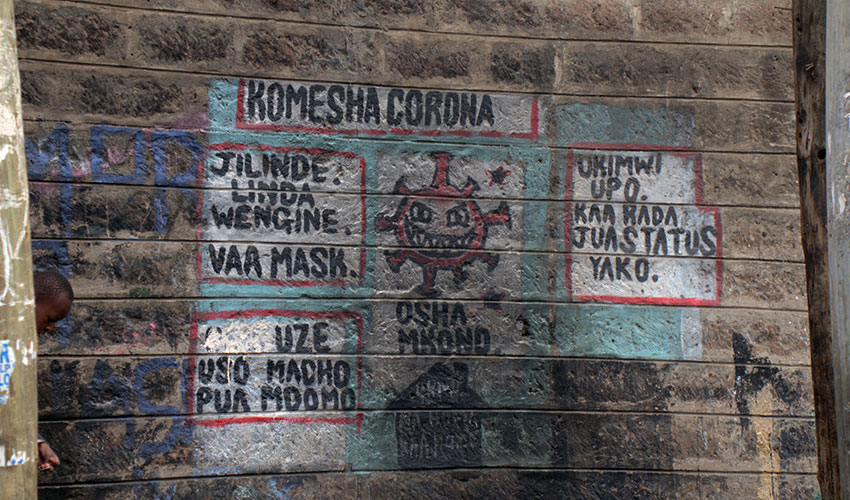
“Is there anyone here who can sing or rap?” another trainer asks. As the students hesitate to respond, he asks a related question: “Who is your favourite rapper?” “Tupac Shakur,” a girl enthusiastically offers, and she is joined by a few others shouting the same name. This opens further debate where the trainer leads the kids into critically dissecting the life of the said rapper. It emerges that Tupac was shot down in Las Vegas in 1996, a death which was attributed to his aggressive music and gangster enemies. Dying in that violent manner at only 25, the students agree, is sad and unfortunate. “His dreams were dashed,” another girl observes. The trainer allowed the young people to express themselves, taking advantage of certain interventions to lead the conversation to another level.
“Is there someone, you feel, that disappointed
or hurt you at some point in your childhood or even more recently?” trainer
Rosemary asked, shifting gears. After a little bit of hesitation, students
weighed in, lamenting about their parents, teachers, boyfriends, girlfriends,
and so on. Their disappointments range from neglect by parents, physical abuse
or simply punishment, unreciprocated love, and so on. The trainer then gave an
exposé suggesting that what may be considered love by underage people was
simply infatuation. She further argued that a young person needed to understand
their emotional self and develop emotional intelligence.
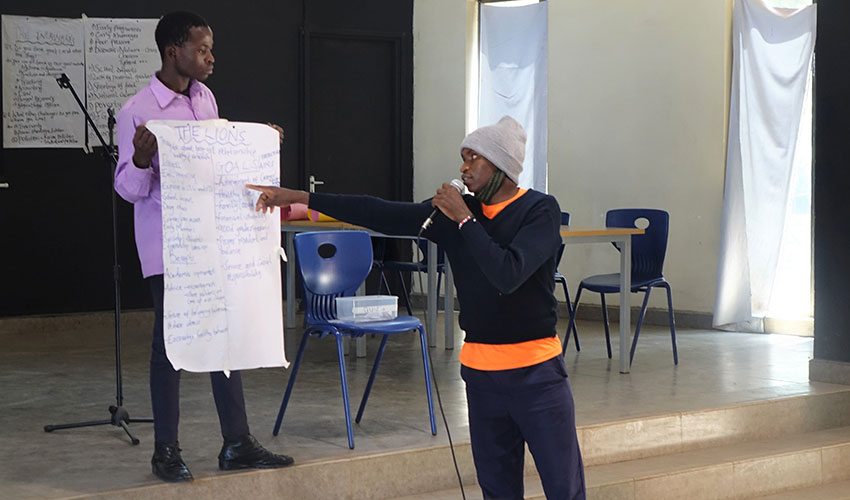
A healing session summed up the day. The students were allowed a silent moment to review their lives thus far. They were then asked to look at their own actions and those of others and to write their thoughts. They did this sitting individually. They were then asked to consider forgiving themselves and others. It was a personal examen. When done, they dropped their crumbled papers into a furnace to signify the end of an era. They were then led in prayer by Fr. Ismael Matambura, the director of AJAN.
There are limitations to AJAN’s outreach. The
absence of counsellors to help students who may have psychological needs is a
huge problem. The fact that students spend most of their time in homes which
are inaccessible to AJAN staff is a challenge. “Covid-19 has also impacted
student lives negatively because being away from school means spending time
with the wrong people. There are a considerable number of cases of pregnancies
with some rather grim situations, like the same boy getting three teenage girls
pregnant. We all have a herculean task now of rescuing the lives of the youth
by changing their mindsets”, said Sr. Rose Macharia of Sisters of Mercy -
Kenya.
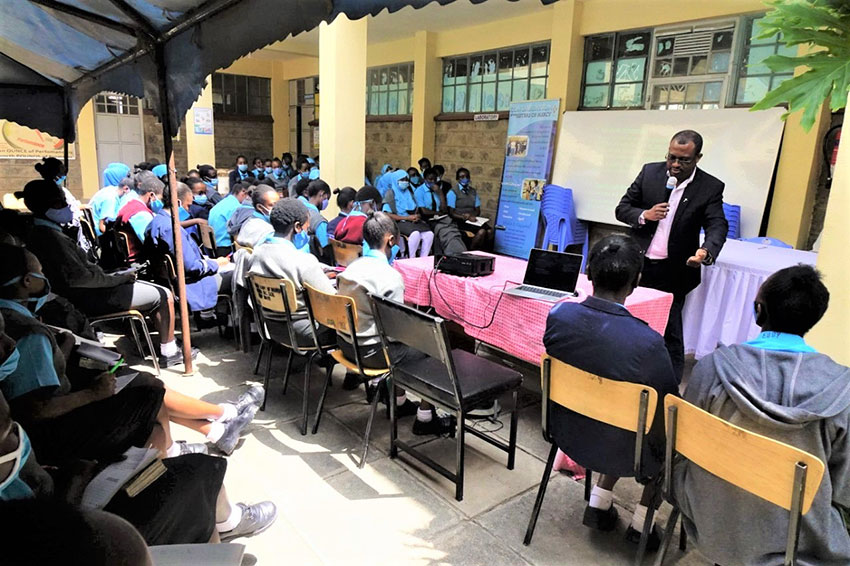
At the end of the session, Fr. Ismael asserted that “the healing session enabled students to reflect and find themselves and God. They could then make a commitment to living decent God-fearing and purposeful lives. This spiritual exercise has a cleansing effect on the hearts and souls of participants.”
AJAN visits in schools highlight the
implementation of the Universal Apostolic
Preferences, which invite accompanying young people in the creation of a
hope-filled future and to walk with the poor, the outcasts of the world, those
whose dignity has been violated, in a mission of reconciliation and justice.
